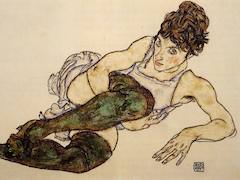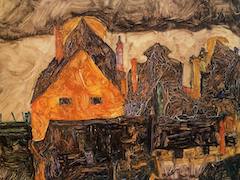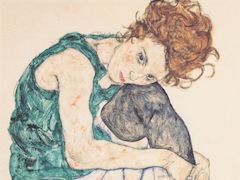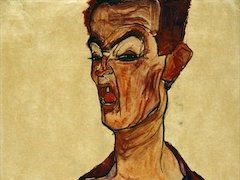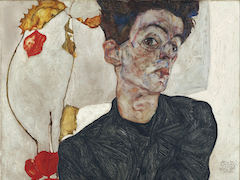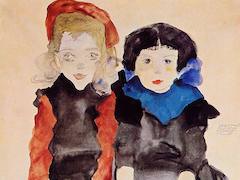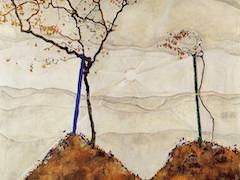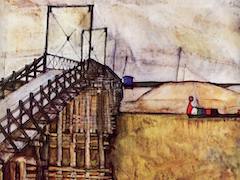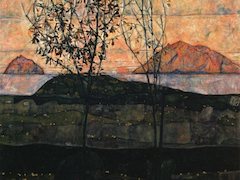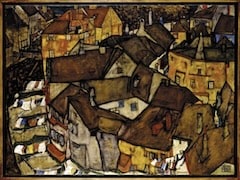Two Girls Lying Entwined, 1915 by Egon Schiele
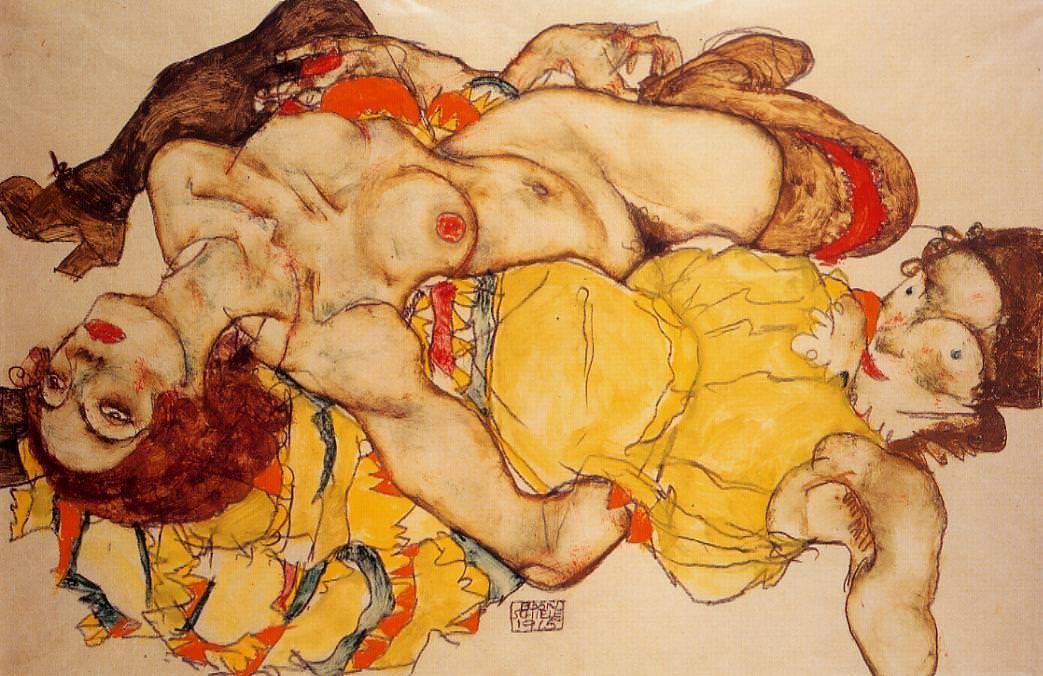
A corollary to Egon Schiele's lifelong obsession with artistic vision was an interest in blindness as an allegorical concept. If the artist is a quasi-religious "seer", it stands to reason that blindness would be his nemesis. Blindness was first the foremost an accusation which Schiele hurled at a philistine public. The mother who failed to nurture her offspring was blind, as were Schiele's hypothetical disciples, whom he tried to lead to the light. But increasingly between 1913 and 1915, Schiele depicted himself with vacant, obscure, or blinded eyes: a humble aspirant rather than a true seer. As the artist attempted to emerge from the solipsism of adolescence, blindness became a metaphor for a lingering inability to establish meaningful contact with others.
It is significant that Schiele at this time was struggling toward more mature sexual relationships. Distancing himself from Wally Neuzil (who, as his model and illicit lover, was by the standards of the day scarcely better than a prostitute). he was preparing to marry a bourgeois "good girl". Edith Harms. In the process, he was succumbing ineluctable to the prevalent double standard: Women were sex objects or people, but not both. Yet while Schiele on one level accepted this stereotype, he did not immediately embrace it. Especially during this period, his portrayals of women are extremely ambiguous.
Depicted singly, the button-eyed or eyeless female nudes drawn by Schiele during 1914 and 1915 suggest an effort to depersonalize female sexuality. Yet, like the blind self-portraits, these doll-like figures may symbolize a failed struggle to make human contact. A third reading is suggested by Two Girls, Lying Entwined. Here it is the clothed model who appeared as the limp and lifeless rag doll, while the nude is fully fleshed out, vibrantly alive. What then did Schiele really want? If the bold, sensual Wally was more "real" than the chaste, genteel Edith, was he about to make a big mistake?

